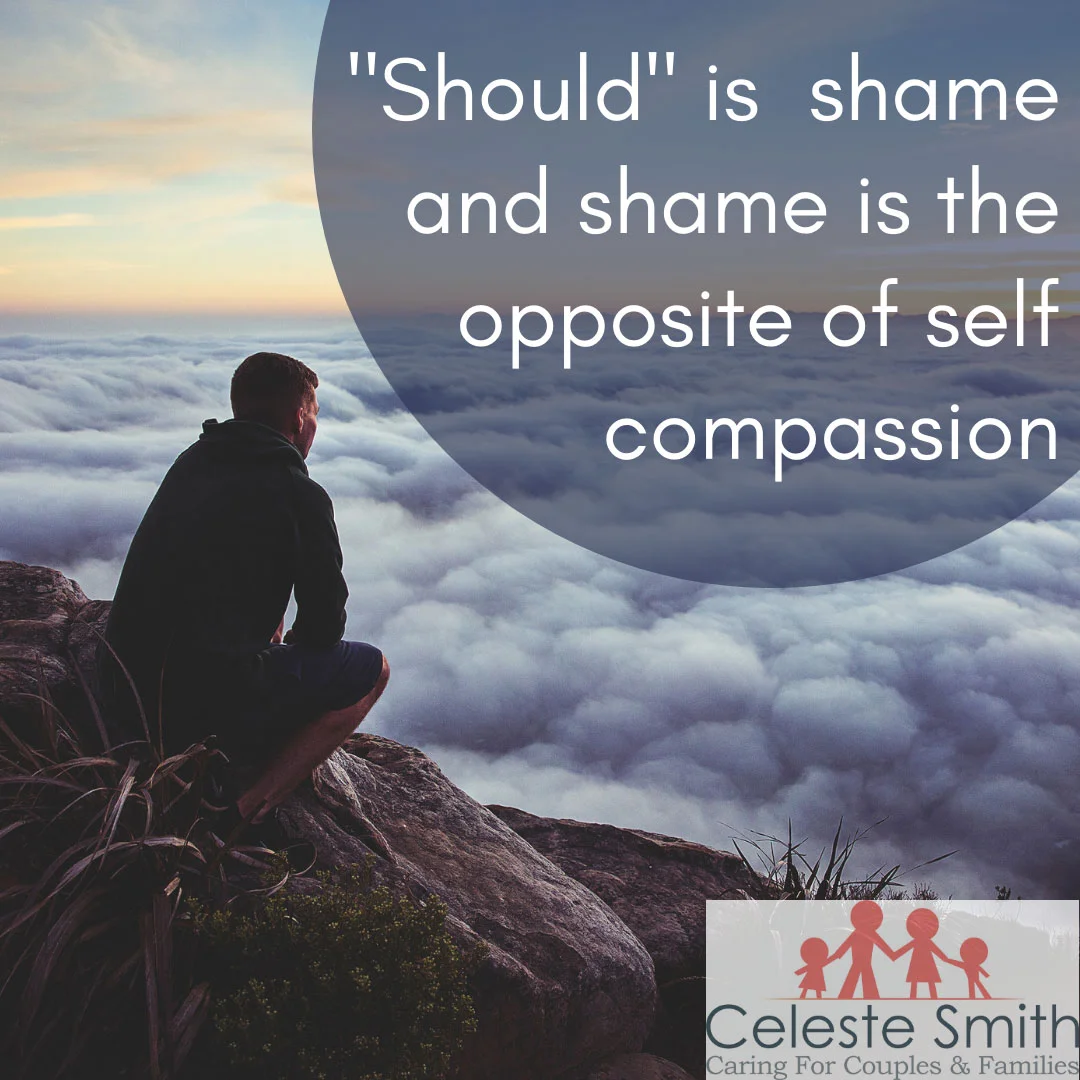What Do Stress, Jesus, and Self-Compassion Have to Do with Eating?
I was feeling a little writer’s block the other day and shot a text to my amazing friend and author Amanda Martinez Beck asking for help. It was in the middle of a pretty deep text conversation she and I were having about life.
We had spent the better part of an hour texting back and forth about my current life stress, eating and body image struggles, and my complete inability to be anything other than an Enneagram Two.
She responded that I could write about stress and busyness, eating/body image thinking and behavior, and how Jesus would respond in my circumstances. Which made me laugh because I was like, “Are you trying to tell me something?” To which she responded, “Is it obvious?” I am continually astonished by how full my life is with friends who give me space to talk about the real stuff and are willing to have hard conversations with me.
Here is some truth: just because I am a therapist doesn’t mean I am immune to stress.
Just because I am an eating disorder therapist doesn’t mean I am immune to eating and body image struggles. Just because I am a recovered person doesn’t mean I get a free ticket from these thoughts and feelings; it just means that I have done the work of being aware that these thoughts are rarely about my body or food.
Let’s back up a little and I will get real honest. This year has been stressful. I would say it’s in the running for one of the all-time worst years of my life. That’s saying something because one year I had I two miscarriages and moved seven hours away in the middle of my therapy internship.
My family and I ended up taking a month off this summer, and we returned home to some pretty high stressors, which were present before we left but had only worsened in our absence.
Here is something you should know about people who have a history of an eating disorder: we can make any problem about food or weight. I have to watch myself in times of high stress because this is exactly what I start to do.
Here is my typical pattern:
An emotional event outside of my control occurs in my life.
I try really hard to be strong and handle it all super well.
I totally fail at being strong and handling all the things super well.
I pour all of my effort and energy into the problems of others.
I begin working 14-hour days because my work allows me to not think about my thoughts and feelings about the original event.
I find a friend who needs something.
I find another friend who needs something.
I find anyone who needs anything.
I clean my house obsessively.
I hit a stress wall the size of Mount Everest.
I begin having super unhelpful thoughts about my body that I entertain and let take over.
I start safe eating.
I end up in a total and complete eating disorder relapse.
Part of my recovery process is to recognize this pattern and pay attention to it. It’s helpful if I can use opposite action at some point to get myself out of the pattern. Opposite action is a dialectical behavior therapy principle that basically encourages us to look at the actions that our emotions lead us toward and to ask if that action makes sense in the situation. If our actions don’t make sense in the situation, we need to move toward opposite action.
Let me unpack that a little. In my situation my very real feelings of hurt, sadness, and anxiety that have been growing over the year are leading me to think that maybe I should change my eating or my body. The problem is, that makes no sense. Changing my body will not change our church stress, the pressure of building a business, family stuff, or the fact that our 14-year-old dog passed away. If anything, what I have learned from doing this in my pre-recovery past is that focusing on my food and body will only make my problems worse. So what is the opposite action I can take? Taking care of myself. Slowing the heck down. Nourishing my body adequately. Taking care of myself. Slowing down. Nourishing myself.
Sounds a lot like what we find Jesus doing in Mark 4 and Matt. 14.
This brings me to the self-compassion piece. Whenever God calls us to love others as we love ourselves, he is making a radical assumption that we love ourselves. It becomes almost impossible to love others when we don’t have self-compassion. We become drained, exhausted, and resentful. We in the therapy world buzz a lot about self-care. Self-compassion is self-care.
A large part of self-compassion is watching the way we talk to ourselves. Researchers suggest it takes seven to 21 positive affirmations to rebuild what one negative affirmation destroys. If I created an app that recorded my self-talk, I can guarantee it would show that my ratio is way out of whack. When I struggle or am having a hard time, I usually beat myself up and tell myself, “I shouldn’t be struggling like this.” Should is shame, and shame is the opposite of self-compassion.
As a follower of Jesus, I think one of my favorite things about him is that he gets me. I think if he were here right now, he would say, “I understand and I have struggled too.” He definitely wouldn’t say, “Hey, Celeste, don’t you know better? I mean, come on—you teach people this stuff all day!” He would talk so much better to me than I do to myself.
How do you handle the emotional rollercoaster that is life? Does your emotional response make sense when you consider your circumstances? Is your emotional response making promises that it can’t or hasn’t delivered? How would Jesus respond to you in this situation?
These are the questions I try to sit with when the rollercoaster seems a little too overwhelming and I don’t quite know where to turn. When all else fails, I know I need to take care of myself, slow down, and nourish myself. You can’t ever go wrong with that. Even when every single part of you is screaming, “Do more, be more, be less!” It’s at those moments would Jesus would eat a good meal with friends, head to the mountains, and ask for a friend to make space for him.









